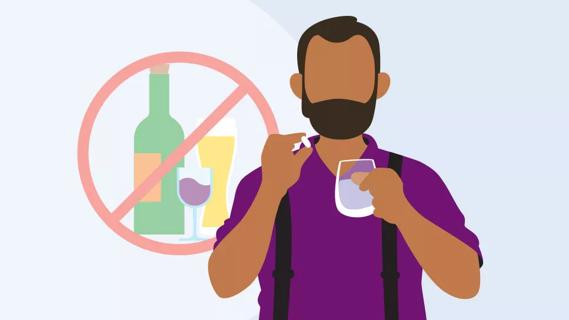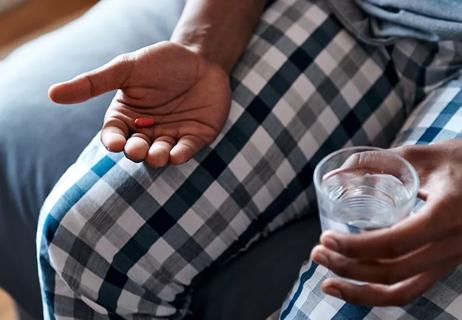How science is fighting superbugs

Antibiotics, designed to fight infections, have been one of the greatest medical advances of the past 100 years. But many health experts warn that we’re entering a postantibiotic era, where drug-resistant “superbugs” threaten our health and economy.
Advertisement
Cleveland Clinic is a non-profit academic medical center. Advertising on our site helps support our mission. We do not endorse non-Cleveland Clinic products or services. Policy
Each year in the United States, 35,000 people die from drug-resistant bacterial infections according to clinical coordinator of infectious disease, Andrea Pallotta, PharmD, BCIDP. And she says our behavior — how we use antibiotics and antibacterial products — may be part of the problem.
Genetic mutations randomly occur in nature. Bacterial genes mutate rapidly in millions of different combinations. Every so often, they get the right combination that helps them adapt to an environmental change — like the presence of an antibiotic. When that happens, only the cells containing the mutation will survive. With their competitors out of the picture, these antibiotic-resistant cells multiply quickly, becoming stronger and often deadlier.
This “survival of the fittest” process becomes accelerated when we overuse antibiotics as medication, in our food or even on our skin.
Unfortunately, many people take antibiotics to treat viral infections like the flu or common cold. And with the plethora of antibacterial products on the market right now, such as wipes and sanitizers, this doesn’t help matters.
Antibiotics have no effect on illnesses such as the common cold, but many Americans still believe antibiotics can help treat the common cold. This misconception is dangerous. Not only can overuse or misuse of antibiotics lead to drug resistance, it can lead to serious health consequences such as clostridioides difficile infection, also called c. diff. which causes severe diarrhea that can lead to colon damage and death.
Advertisement
“Before taking antibiotics for something that may not be bacterial in nature, ask your doctor if you really need them,” Pallotta says.
And if you know someone who frequently takes antibiotics for simple sneezes and sniffles, let them know they could be endangering themselves.
The concern is not just for antibiotics, either. According to the U.S. Food and Drug Administration (FDA), there isn’t enough data to support that antibacterial soaps are any better than plain soap and water at killing the germs that cause illnesses.
Drug-resistant bacteria are especially prevalent — and dangerous — in hospitals, nursing homes and other healthcare facilities. A 2019 Centers for Disease Control (CDC) report shows that multi-drug-resistant bacteria called CRE (carbapenem-resistant enterobacterales) are rapidly rising. These superbugs are resistant to nearly all existing antibiotics, and they kill 50% of hospitalized people with CRE infections.
C. diff., the hospital-related pathogen mentioned above, is becoming more deadly due to drug resistance. The majority of C. diff-related deaths occur in patients 65 years and older. C. diff-related deaths have quadrupled in the last 10 years.
How do we fight this deadly trend? We just need to make more antibiotics, right?
It’s not that simple.
“The pipeline of new antibiotics has dried up considerably since the early 1990s, and the number of pharmaceutical companies investing in antibiotic research has dwindled,” says Pallotta.
However, some researchers are developing the next generation of antibiotics by studying and exploiting our natural defense mechanisms. Research is ongoing to develop new antibiotics, including those with unique mechanisms of activity, to combat C. diff, CRE, among others.
Superbugs are a major threat to global health, but with rigorous education and innovative research, we still have a chance to beat them.
Advertisement

Sign up for our Health Essentials emails for expert guidance on nutrition, fitness, sleep, skin care and more.
Learn more about our editorial process.
Advertisement

This antibiotic can cause tooth staining that doesn’t fade on its own — but you still have options for whitening your smile

Even a little alcohol can slow your recovery, so it’s best to wait until after you finish your antibiotics before imbibing

Don’t assume you need them when you’re sick

Tips on probiotics and food choices

The little blue pill might help with physical arousal, but there are better treatments for low libido in women

Most antihistamines, like Zyrtec, are OK, but avoid decongestants for at least the first trimester

This diabetes medication can treat obesity, but it’s not for people who just want to drop a few pounds

Weight loss may cause loose, sagging skin and muscle loss to your rear

Even small moments of time outdoors can help reduce stress, boost mood and restore a sense of calm

A correct prescription helps your eyes see clearly — but as natural changes occur, you may need stronger or different eyeglasses

Both are medical emergencies, but they are very distinct events with different causes